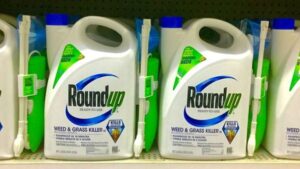
When Roundup was launched in 1974, the manufacturers probably had no idea that their major ingredient, glyphosate, would one day come under fire and be globally accused of causing millions of people to suffer a disease as grave as non-Hodgkin lymphoma. Unfortunately, that’s the current situation.
You have grounds to file a Roundup lawsuit if you or a loved one has suffered any of the health risks associated with the use of Roundup.
But before you do, we want to give you a very detailed overview of the evidence linking Roundup to non-Hodgkin lymphoma. You deserve to be fully informed so you can make the best possible decisions for yourself or your affected loved one.
Not just the Roundup lawsuit, there are plenty of other product liability cases currently in progress that you may not be aware of. Lawsuit Legal News is pretty helpful in this regard as it provides all the information one needs about all the current lawsuits. It also provides resources for individuals to become a part of one.
What is Glyphosate?
Glyphosate is a type of weed killer that was first found to be effective in the 1970s. It’s the main ingredient in many weed killers, like Roundup.
Glyphosate works by blocking a process plants need to grow, which kills the weeds. This process doesn’t exist in humans or animals, so glyphosate was thought to be safe for people when it was first used.
Brands Containing Glyphosate:
- Roundup
- Glifonox
- Rodeo
- Weedoff
- Bronco
- Ortho GroundClear
- Eraser
- RM43 Total Vegetation Control
- Ranger Pro Herbicide
- Dow Rodeo Herbicide
Health Concerns of Glyphosate
The main health concern with glyphosate is that it might cause a few types of cancer, including non-Hodgkin lymphoma.
In 2015, the International Agency for Research on Cancer (IARC), which is part of the World Health Organization (WHO), said glyphosate is “probably carcinogenic to humans.” This means there is a chance it could cause cancer, especially a type called non-Hodgkin lymphoma that affects the lymphatic system.
This conclusion was based on animal studies and some limited evidence from studies on humans.
The IARC classified glyphosate as a probable carcinogen (Group 2A) because animal studies showed it might cause cancer, and there was some evidence suggesting it could be harmful to humans.
However, not all regulatory agencies agree with this finding, and there has been a lot of debate about it.
There have been several legal cases about whether glyphosate causes cancer. In 2019, a jury gave $80 million to a man from California who said Roundup made him sick. They decided that Monsanto, who made Roundup, was responsible for his illness.
In another case, a former school groundskeeper got $289 million because he developed a serious type of cancer after using Roundup consistently.
Scientific Studies and Findings on the Matter
A 2019 study looked at data from multiple sources and found that high exposure to glyphosate might increase the risk of developing non-Hodgkin lymphoma by about 41%.
Animal tests have shown glyphosate can cause cancer, including non-Hodgkin lymphoma, in rodents. Scientists have also found that glyphosate can damage DNA, which is the genetic material inside cells.
Also, glyphosate might make a B-cell genome mutator enzyme more active, which could help explain how the cancer starts.
Responses from Regulatory Bodies
The Environmental Protection Agency (EPA) has looked at glyphosate many times. In 2020, they released a statement reporting that glyphosate is probably not cancer-causing for humans if you use it the right way. This decision was based on several studies and reviews.
Even though the International Agency for Research on Cancer (IARC) says glyphosate might cause cancer, other agencies like the Canadian Pest Management Regulatory Agency, the European Food Safety Authority, and the Australian Pesticide and Veterinary Medicines Authority have looked at glyphosate too. They haven’t called it a cancer risk and think it’s safe when used correctly.
To be on the safer side, the Environmental Protection Agency (EPA) in the U.S. sets limits on how much glyphosate can be in products. They say it’s safe for people to be exposed to up to 0.5 mg/kg body weight per day.
However, some countries like Argentina, Austria, Canada, and France have banned or heavily regulated weed killers containing glyphosate because they do not believe it can be used safely.





